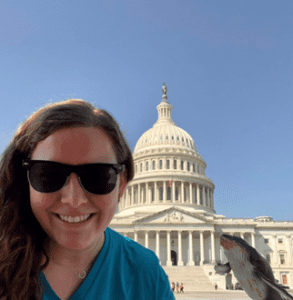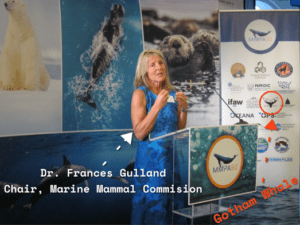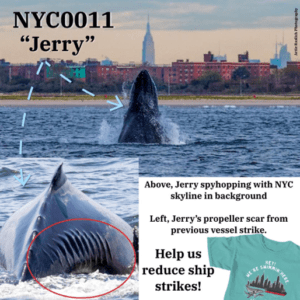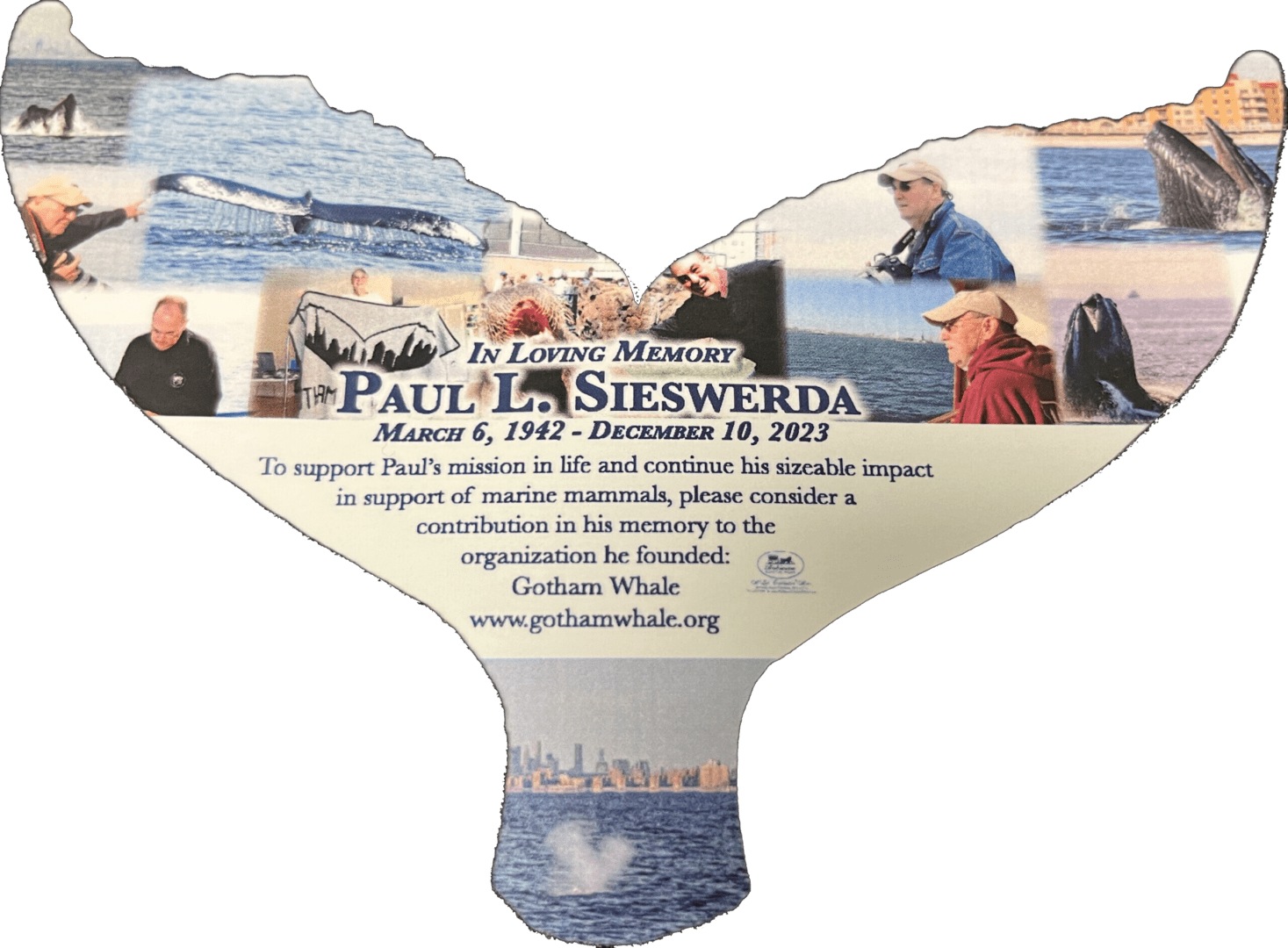By: Sarah Ryan Hudson, Esq., originally published in The Gam, October 2022
Gotham Whale just got back from Capitol Hill! In order to make the right policy decisions, legislators rely on experts and peer-reviewed research, in addition to what matters to their constituents. Gotham Whale teams up with local and national organizations to protect the marine mammals we study when they’re in our research area and throughout their migration.

Thanks to the outpouring of public support for stronger environmental protections, Congress passed several laws, including the Marine Mammal Protection Act of 1972 (MMPA) in response to growing concern about human impacts on marine mammals. As we all learned more about these sentient creatures, their struggles resonated with people around the globe. People determined to prevent the loss of these species forever spoke out, and it became illegal to kill or harass these animals.
Since then, no marine mammal has gone extinct. Lawmakers and the MMPA Coalition (including GW) gathered on Capitol Hill to celebrate the successes of this bedrock environmental law. Everyone has the opportunity to join in on the conversation, learn more, and celebrate with the hashtag #MMPA50. We also met with legislators to discuss the ongoing issues facing marine mammals such as underwater noise, entanglement, and climate change.

The major issue of discussion was vessel strikes. The calving season of the critically endangered North Atlantic right whale (NARW) is imminently approaching. With fewer than 340 individuals remaining, it is vital that they all travel safely to and from the breeding grounds. Since the NARW spends most of its life within 50 miles of shore, they’re especially vulnerable to vessel collision.
NOAA Fisheries has proposed a change to the vessel speed rule to further reduce the likelihood and severity of ship strike, a top cause of injury and mortality. Some of the MMPA Coalition members have opportunities for you to participate such as this Oceana Petition and WDC Petition. This issue is especially important for areas along migration routes that have high vessel traffic, such as the port of New York-New Jersey.
The risk of vessel strike is intensified where busy ports overlap with migration routes or feeding grounds. Gotham Whale’s Lead Humpback Whale Researcher Danielle M. Brown contributed to a study published earlier this year, which found the feeding behavior whales use in our area makes them additionally vulnerable to ship strikes, since lunge feeding occurs near the surface.
Several of the whales in our research area show signs from past boat collisions, including some of our most well-known and beloved whales. GW is bringing attention to this issue with our Hey! We’re Swimmin’ Here campaign to reduce ship strikes. Boaters can also take this boating safety course offered by WDC to learn more about responsible whale watching.

Marine mammal issues are local New York issues. As with many issues, awareness and education are a big part of solving them. It’s essential for our representatives to hear what people care about! Our mission is to research, educate about, and advocate for the marine mammals in the New York Bight. If you’ve told someone about Gotham Whale or contributed a data point, you’re helping us protect NYC’s whales, dolphins, and seals, and we thank you!
